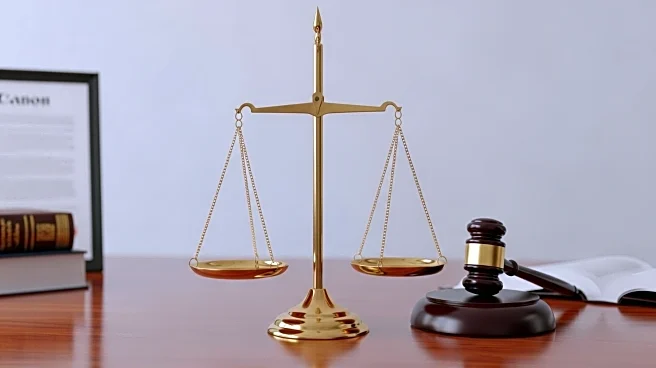What's Happening?
The Associated Press (AP) is contesting President Trump's inaccurate statements regarding a legal dispute over media access. President Trump claimed that the AP lost a lawsuit against him, which he mentioned during a speech on an aircraft carrier. Contrary to his statement, the AP had actually won the case, which involved the White House's decision to block AP's access to certain events after the news service did not comply with an executive order to rename the Gulf of Mexico. The court ruled in favor of the AP, supporting free speech rights, but the enforcement of this ruling is delayed pending an appeal by the government. The appeal is scheduled for November. The AP argues that the government is unlawfully retaliating against it for its editorial stance, and the court agreed that the White House cannot exclude reporters based on their reporting.
Why It's Important?
This legal battle underscores the ongoing tension between the Trump administration and the media, highlighting issues of press freedom and government transparency. The outcome of this case could have significant implications for media access to government events and the ability of the press to report without fear of retaliation. A ruling in favor of the AP could reinforce the rights of media organizations to operate independently of government influence, while a decision favoring the administration might embolden further restrictions on press access. This case is part of a broader pattern of legal actions by President Trump against various media outlets, reflecting his contentious relationship with the press.
What's Next?
The U.S. Court of Appeals is set to hear arguments in November regarding the government's appeal of the ruling in favor of the AP. The decision from this appeal could set a precedent for how media access is managed by the White House and potentially influence future interactions between the government and the press. Media organizations and free speech advocates will be closely monitoring the outcome, as it could impact their operational freedoms and the public's right to information.









